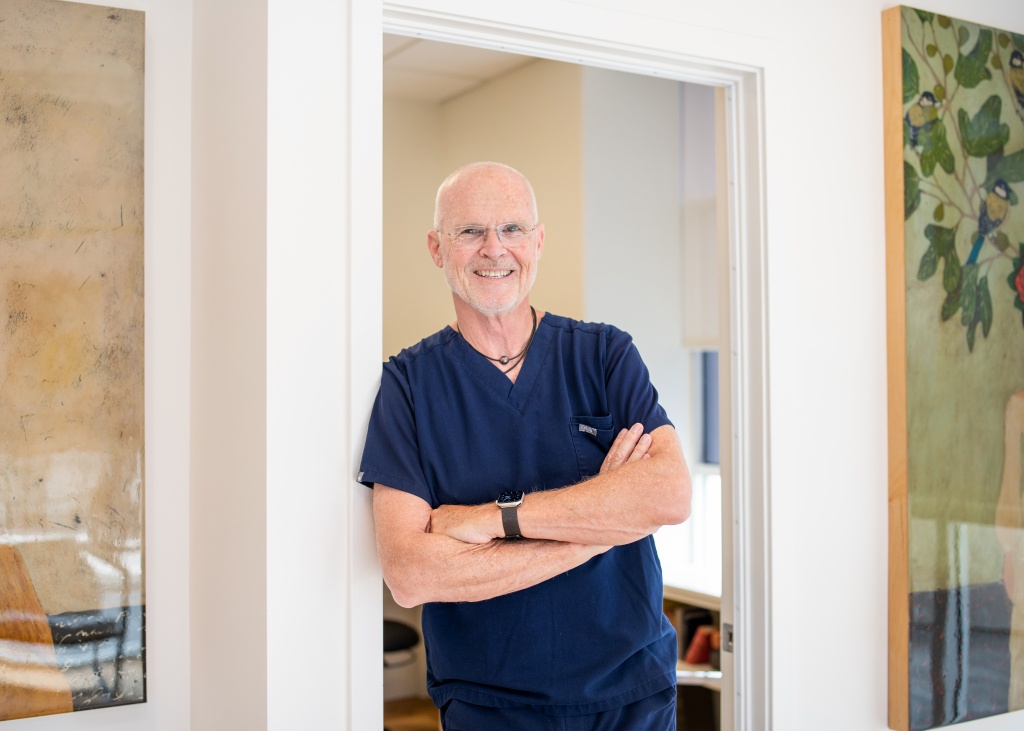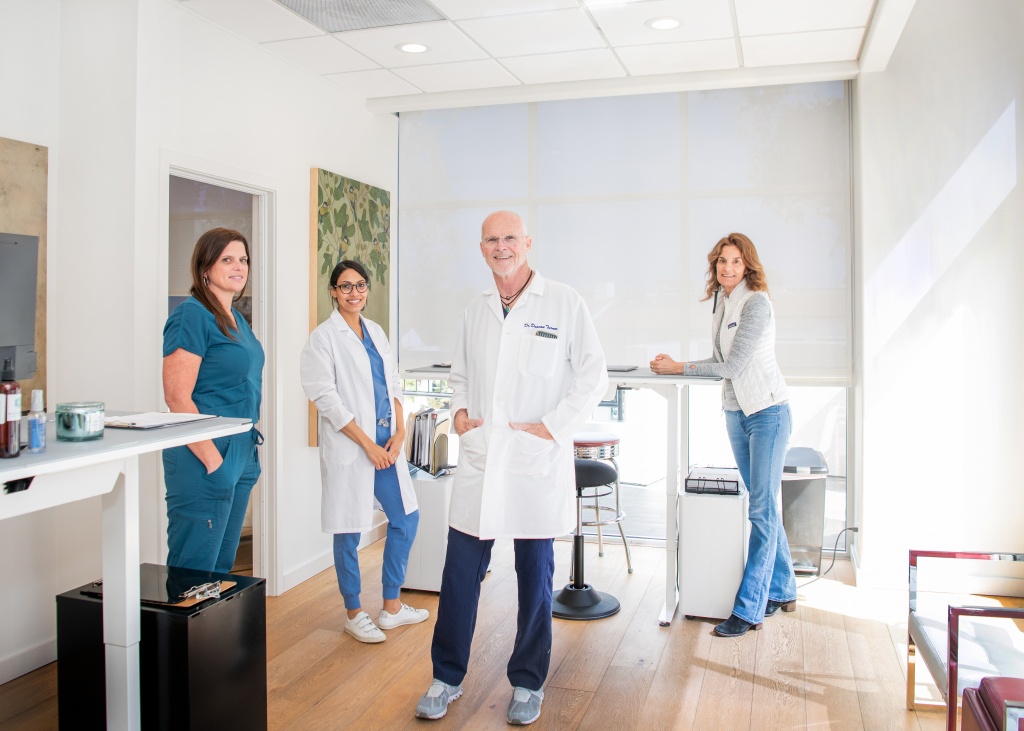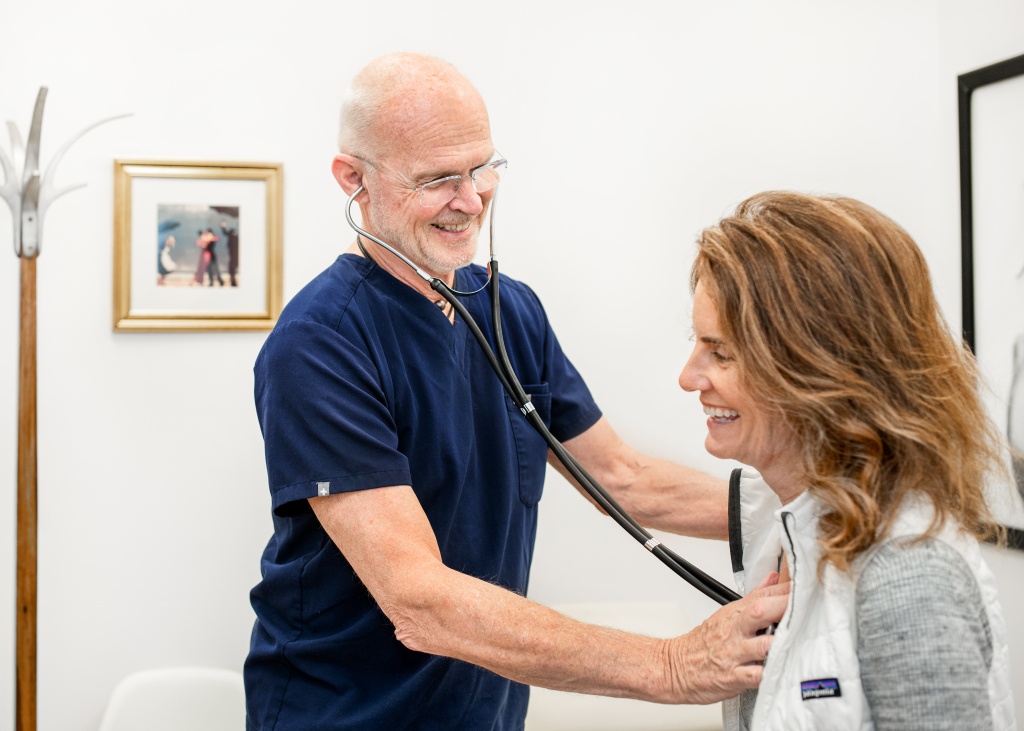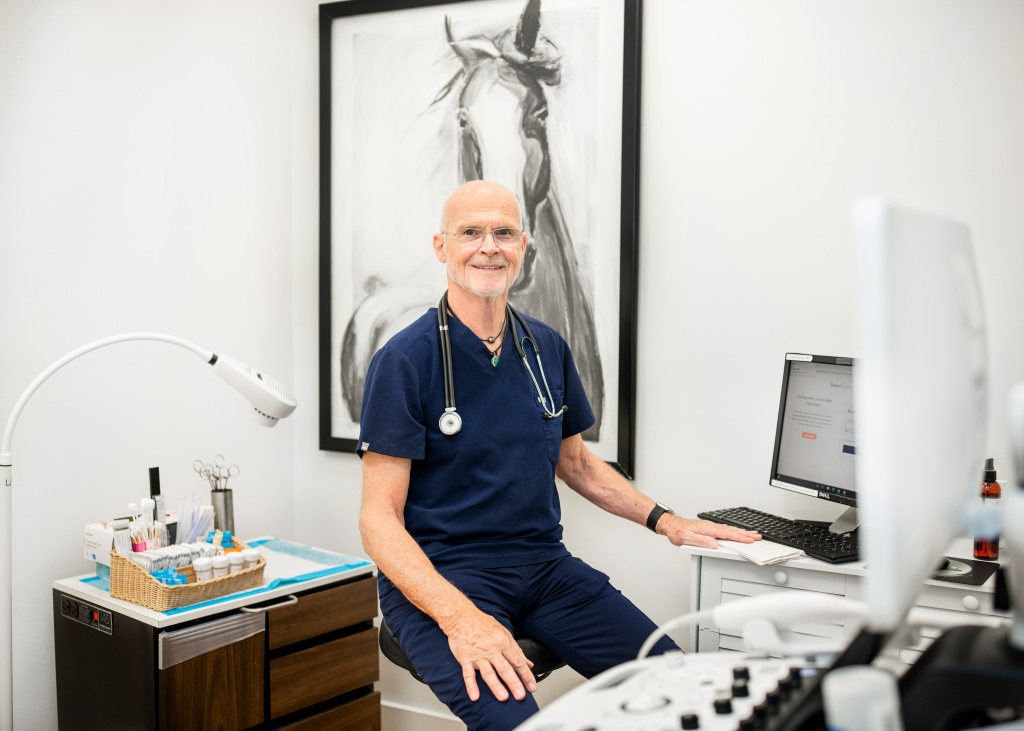Bringing An Anti-aging Inspired Philosophy To Direct Primary Care

Still caring for patients and running his practice at 75, Dr. Duncan Turner doesn’t consider himself to be an elder statesman in medicine, but he does recognize how much has changed in his career. When he was in high school back in England, his first introduction to medicine was being invited to observe a live surgery. “I knew then that I had found my calling,” he said. As he looks back at his medical career, Dr. Turner hopes that the next generation of physicians can learn from his story.
After completing his medical degree and residencies in England, he ultimately made his way to the United States by way of Canada, where he accepted a position in pediatrics. But his heart was set on specializing in obstetrics and gynecology. “It’s a really good specialty, because it has a bit of everything– surgery, OB, infertility.” he explained.
Dr. Turner opened his practice Turner Medical Arts in 1978, specializing in sexual medicine, hormone replacement therapy, and gynecological surgery. Since then he has become a force to be reckoned with in the field of women’s medical care.
In 1987, he spearheaded the development of a neonatology program for high-risk newborns and NICU at Santa Barbara Cottage Hospital. He has also been instrumental in developing laparoscopic surgery devices allowing for minimally-invasive surgeries, which changed the industry. And in the mid-1990s, he was the first physician to introduce nurse midwifery to Cottage Hospital, which encouraged midwives to be autonomous.

Care you can count on
Dr. Turner describes his medical philosophy as anti-aging, referring to finding the best lifestyle factors – whether they are hormonal, environmental, genetic, or nutritional – to optimize the body’s ability to self-repair, thus enhancing total health and wellness. As a Direct Primary Care practice (DPC), he complements this with his personal philosophy of taking time with patients and really listening to them.
“The single most important thing is listening, and enabling people to understand what they have, be involved in the decision making, and feel like they have been listened to,” he said. He firmly believes that is the secret to why his practice has been successful. He also supports patients who feel strongly about pursuing a different path to treatment, by associating with a plastic surgeon and an anti-aging, internal medicine specialist, both of whom work part-time out of his office.
Rather than insisting that they follow his suggestions, he instead supports them by making sure that they have enough information to make the decisions themselves. “A lot of doctors don’t really allow the patient to be involved in the decision making. I think that’s a real mistake, it’s not looking after the whole patient.”
-Dr. Turner
The practice’s tagline is “Care you can count on,” and its authenticity is evidenced by their loyal patients, many of whom have been with him since he started Turner Medical Arts over forty years ago. As a DPC, Dr. Turner cancelled all insurance contracts a decade ago, which enables him to spend more time with his patients. He is grateful that visits are no longer tied to a clock. “I don’t have to run the rat race of keeping the numbers up,” he said.
Dr. Turner also asserts that having surgery himself has helped him to become a better surgeon. “Seeing what it feels like to be on the other end of the scalpel, so to speak, makes me more aware of what patients need,” he said.
Pandemic Pivoting
In the height of the pandemic, Dr. Turner closed down his physical office for two and a half months. He continued paying the staff, which he was able to do with the help of a Payroll Protection Plan loan. The office had just launched a telemedicine program in the practice before COVID-19, which enabled him to communicate with patients during that time. The income decreased over the year by about 40%, but that didn’t deter Dr. Turner. “That was difficult, but we managed,” he said. “We just kept patients as safe as possible.”
Thriving in direct primary care
Starting his own practice was not ever a big question for Dr. Turner. “I really like patients and I like private enterprise,” he said. “I didn’t want to be told what to do by someone else in an academic program.” He also felt that he could use his skills to the best of his ability. But the biggest benefit? The autonomy to run things himself, the way he wants to.

Dr. Turner identifies the red tape that often exists with insurance companies and pharmacies as part of the greatest challenges physicians face today. He believes that patients should be permitted to have their medications paid for by the insurance companies. However, sometimes the amount of paperwork that must be done to give what he feels is the best medication, but may not be the cheapest, is often a hurdle that he has to overcome in order to fulfill all of the requirements for the insurance company.
He also describes building lasting relationships with patients as one of the biggest rewards to running his own practice. “It’s really a very gratifying existence,” he acknowledged. Now that he has shifted his focus from OB to GYN, he has a better quality of life as a result. He can take time off as long as he has someone who can cover for him when medical emergencies arise.
Advice for success in a direct primary care practice

With decades of experience under his belt, Dr. Turner shared a few tips for those who crave autonomy and the freedom to practice their own way but don’t know where to start:
Align yourself with another direct primary care practitioner: Dr. Turner describes this as the best way to learn from someone who is already established, and also share expenses. This also gives you flexibility with scheduling. Just make sure that you associate with someone who is not in direct competition with you.
Find the right tools to help you with your practice: Dr. Turner praises his EHR, Elation Health, for being easy to use. “Elation is a breeze– it’s quick, it’s great, and I like the templates,” he said.
Educate yourself on the business aspects of running a practice: With everything that is covered in medical school, Dr. Turner feels that one area is lacking– the ins and outs of running your own practice. “Those [business skills] are not taught, they just throw us out there and we don’t have a clue,” he lamented.
In his role as a gynecologist, Dr. Turner enhances total health and wellness for his patients. As a DPC physician he is able to run a patient-centered practice collaborating with lifestyle medicine specialists to personalize treatments without overbearing insurance hurdles.






